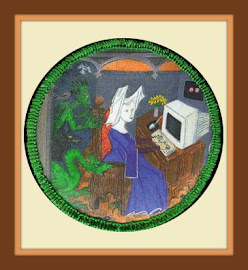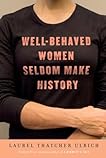Wild Swans by Jung Chang chronicles the lives of three generations of Chinese women--the author's grandmother, mother and herself--from the early 1900's though the Cultural Revolution and the death of Mao. This is an amazing book in that it embeds the personal stories of this family in the tumultous and horrific historical conditions of the time. Like The Lost in this regard, I find that this is a great way to learn history.
The changes that China endures through the time period recorded here are incredible. Er-Hong, the grandmother, is born in 1909, a period when foot-binding is still common. However, within only a few years, this practice is obsolete. Her first "marriage" at age 15 is to a warlord as a concubine. After the marriage ceremonies, she is sent to live in a large home, with a bevy of servants, but no sign of her husband for 6 years. This is fortunate in a way since she still lives close to her parents and doesn't have to live under the thumb of her husband's other wives and concunbines. When he returns for a few days, she becomes pregnant with the narrator's mother, De-hong. A short time later, Xue, her warlord husband dies.
She goes on to find a wonderful older man. Dr Xia is 65 years old, but he falls in love with the 25 year old Er-Hong and wants to marry her, much to the dismay of his family. Some of his children are older than she is, and they are furious that he wants to marry a former concubine. With the strict formalities on familial order and status, they will become subjected to a much younger woman. One of the sons shoots himself in protest. But, Dr Xia remains committed to marrying Er-Hong and caring for her young daughter. They marry, but family contention continues in full force as Dr Xia's children and grandchildren begin to bully both Er-Hong and De-Hong. When De-Hong, as a little girl, is pushed into the bottom of a deep well, Dr Xia has had enough and he takes his wife and her daughter and moves away. Away from his family. Away from his business and home. And into poverty to start life anew as a 65 year old man.
The story goes on. De-Hong grows up and as a teen-ager witnesses the conquering of the Kuomintang by the Communists. She becomes a fierce and committed follower of Communism, believing wholeheartedly in their ideology and their ability to make Chinese society a better place. In fact, after the Communist victory, they are able to quickly get the economy up and running, the peasants are grateful for the added benefits they see, and I thought that the Communists, at least as portrayed here, were a better alternative to the extravagent, cruel, and excessive Kuomintang. (Who, with Chiang Kai-Shek went across the sea of China to found Taiwan.)
I want to do a seperate post on all the gender stuff that this book is saturated with. The lives of these women are fascinating, and the intersection of Chinese history and politics and how it shaped gender roles and relationships is so interesting. Starting with the egregious practice of foot-binding with the author's grandmother, women seem to be simply appendages to their husbands. Under Communism, this changes somewhat and old traditions that subjugate women are altered, but in a distorted way. More on this later.
De-Hong marries a Communist official about 10 years her senior. Early in their marriage, she sees that he is more committed to the Communists and their ideals than to her and her health and happiness and is bitterly disappointed.
“My father’s devotion to communism was absolute. He felt he had to speak the same language in private, even to his wife, that he did in public. My mother was much more flexible; her commitment was tempered by both reason and emotion. She gave a space to the private that my father did not.”
On a march through the jungle to arrive at their new home in Chengdu, he refuses to allow her to ride in the government jeep although she is very sick. She later miscarries and has to be hospitalized. But, allowing her to ride with him shows favoritism and nepotism and these are the traditions of Old China that must be knocked down. When she is pregnant and sick again, her mother spends one month travelling to come and visit and take care of her. Because of rules and because being pampered by your mother's cooking and care is considered bourgeois, after one month, she is forced by De-Hong's husband and her cell leader to leave and spend another month travelling back home to Manchuria. Chang says that her mother was never able to forgive her father for these and other similar incidents.
One of the other fascinating sections of the book is about Mao and how his policies shaped life for a generation of Chinese people. His main objective seems to be the preservation of his own power. His revolution exists to eliminate any capitalist tendencies and borgeois traditions. He claims that his is a revolution for the peasants and laborers, but it seems that he likes them only insomuch as they don't question him. He distrusts any intellectuals, professionals, artists, and others who show independence of thought and action. time and time again, he crushes any intimation of criticism of his policies, the government, or any thing that may appear to foster thinking. Books are burned, public denunciations, that are often opportunities for settling personal vendettas and operate based on rumor and terror rather than actual fact, are conducted with public beatings. And all this culminates in the Cultural Revolution.
By this time, the author's father realizes that Mao is misguided and disagrees with the tenets of the Cultural Revolution. He is not willing to stand and kowtow to Mao and his policies any longer and despite his wife's begging, sends a letter to chairman Mao with his grievances listed. The one thing about Jung's father: he is a man of integrity. He stands up for what he believes in, no matter what the cost. He is taken for investigation and is renounced as a class enemy. He is relocated to the countryside for re-education and for hard labor. Her mother is also assigned to the country, as are the older children in the family.
Even through all of this, Jung is conditioned to see Mao as a god, as infalliable. All her frustrations are directed to other sources. It's Madame Mao. It's the Tings and other local leaders who abuse their power. She goes on a pilgrimage as a 15 year old with her friends to see Mao. This means waiting for a month in Peking to eventually see him in a motorcade for a mere few seconds.
As a university student studying English, she eventually starts to see the despicable and tyrannical Mao.
After Mao's death, the country begins to open up, and based on her intellect and desire, Jung ends up being one of the first Chinese to leave the country to study in a foreign country.












